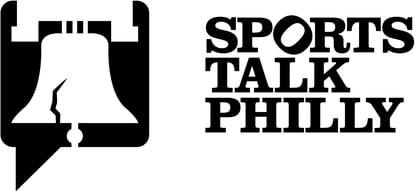Over the weekend, ESPN's John Buccigross provided an update to a column originally posted in 2009 — what a Mt. Rushmore would look like for each NHL team. TSN's BarDown sports/pop culture site joined in on the fun as well.
The Mt. Rushmore trend has been a fun topic of late, especially with MLB's fan vote for a "Franchise Four" of each team over the first half of the season.
With that in mind, here's a look at how a Mt. Rushmore would look for the Flyers. Plenty of players have donned the Winged P over the years, so picking just four isn't exactly the easiest task.
Bobby Clarke: No doubt about this one. Robert Earle Clarke is the only Flyer to have worn the uniform for over 1,000 games (1,144 to be exact, over 15 seasons), and his 1,210 points lead the team by a wide margin. He captained the team for nine seasons, and was the face of the Broad Street Bullies teams that marauded their way to back-to-back Stanley Cup wins. Clarke also parlayed his playing career into two lengthy terms as general manager, where he made some of the team's most polarizing trades and always found himself in controversy.
Bernie Parent: Another slam-dunk, Parent is widely considered (along with Ron Hextall) to be the greatest goalie in franchise history, as well as one of the best in his era. Parent backstopped the Flyers to their Stanley Cup titles, and maintains a legacy to this day as one of the most beloved figures in Philadelphia sports history. And to think that the Flyers nearly lost him for good after a 1971 trade to Toronto — the rise of the upstart WHA combined with the micromanagement of Maple Leafs owner Harold Ballard led to a trade back to the Flyers, where he blossomed.
Bill Barber: Bill Barber, along with Clarke and Reggie Leach, formed the daunting "LCB Line" following Leach's trade to the Flyers in the 1974 offseason. Drafted seventh-overall by the Orange and Black in 1972, Barber played 903 games over 12 seasons, scoring 420 goals and 883 assists. Barber also spent a second incarnation with the organization as coach with two teams — the Phantoms from 1996 to 2000 (where he won the franchise's first Calder Cup) and the Flyers from 2000 to 2002 (where he became the fourth Flyers coach to win the Jack Adams Award, but flamed out in the first round of the playoffs in both seasons). While mutiny among the players he coached led to his dismissal, his accomplishments as a player earn him a spot on this list.
Mark Howe: Without a doubt, Mark Howe's the greatest defenseman in franchise history. He was a catalyst on the Flyers' two Stanley Cup Final runs in 1985 and 1987, and may have been able to hoist the Cup if not for the vaunted Edmonton Oilers dynasty. Following a trade from Hartford in 1982, Howe spent 10 seasons and 594 games as a Flyer, and was nominated for the Norris Trophy three times — ultimately losing out to Rod Langway, Paul Coffey and Ray Bourque, respectively.
The hardest part about compiling lists like these is their concision — it's frustrating to snub players such as Hextall, Brian Propp, Eric Lindros, Eric Desjardins, Dave Poulin, Tim Kerr, Mark Recchi, John LeClair and much more. But while they haven't made the cut for the franchise's Mt. Rushmore, that does not, by any means, downplay the contributions they each made to the franchise.
It's also easy to wonder what current Flyers could make the list if an update becomes necessary several years from now. Sure, it's easy to speculate that players like Claude Giroux or Jakub Voracek could go on to become cornerstones of the franchise’s history, or prospects like Samuel Morin and Shayne Gostisbehere could be pillars as well. They may not dilute the accomplishments of the players that came before them, but it will lead to terrific debate material.
Rob Riches is a contributor to Flyerdelphia and Sports Talk Philly. Follow him on Twitter @Riches61

